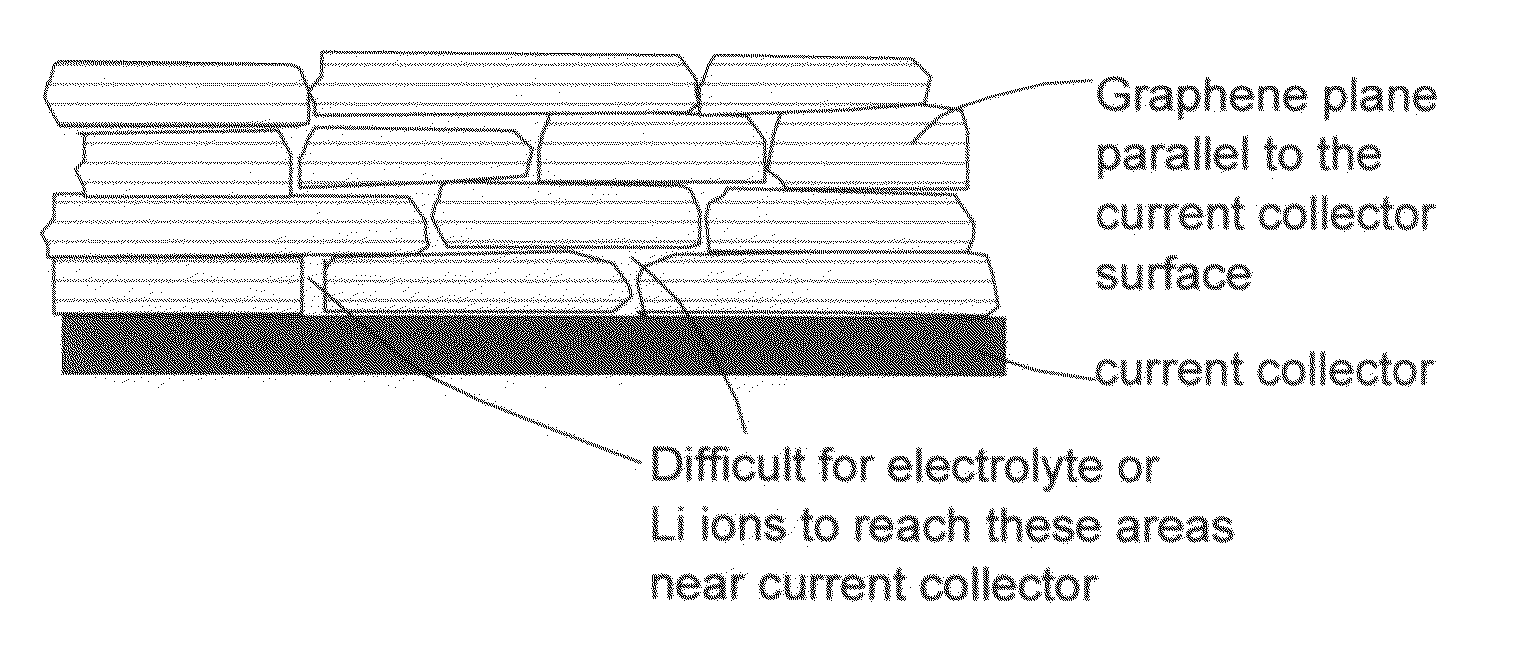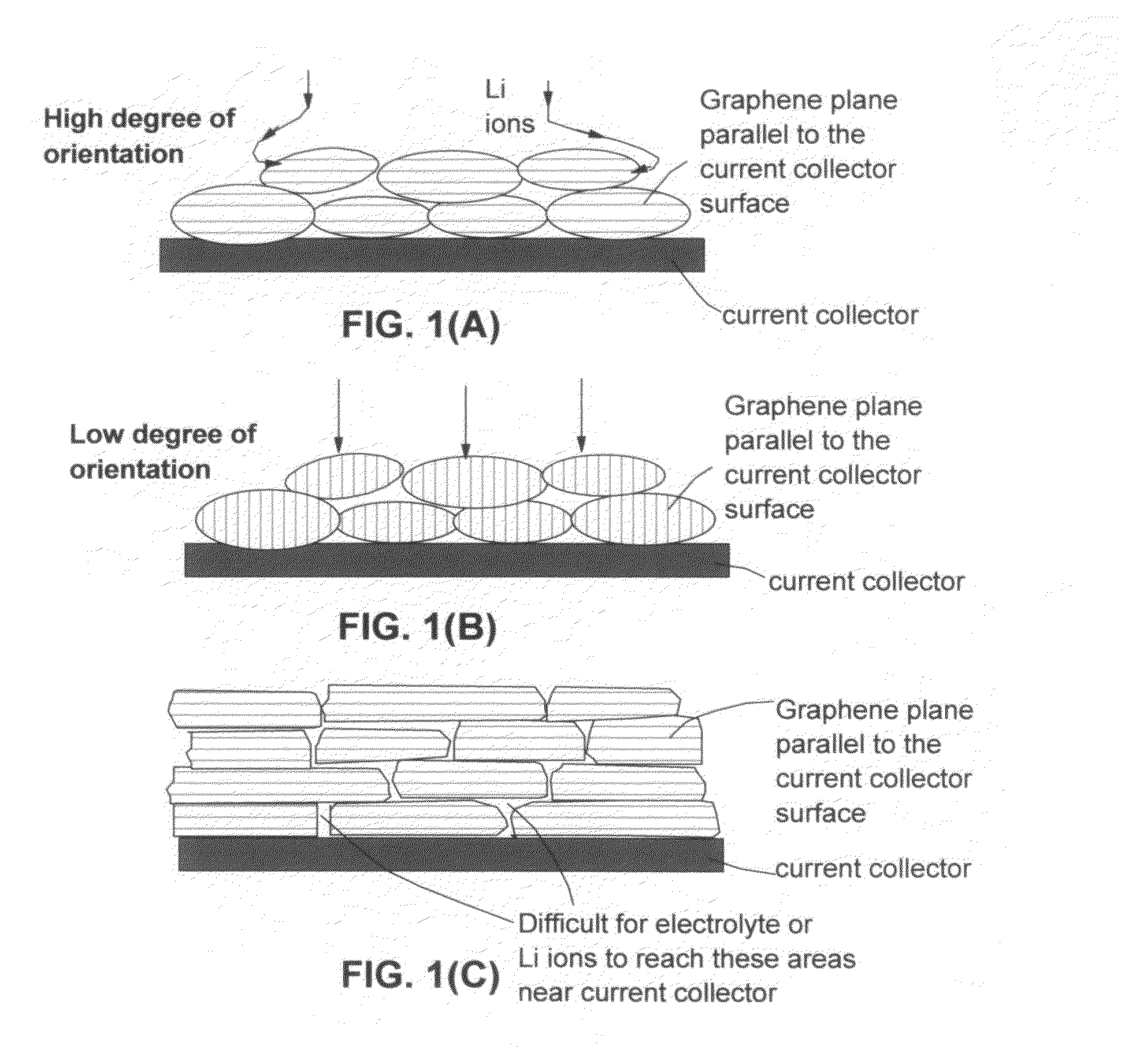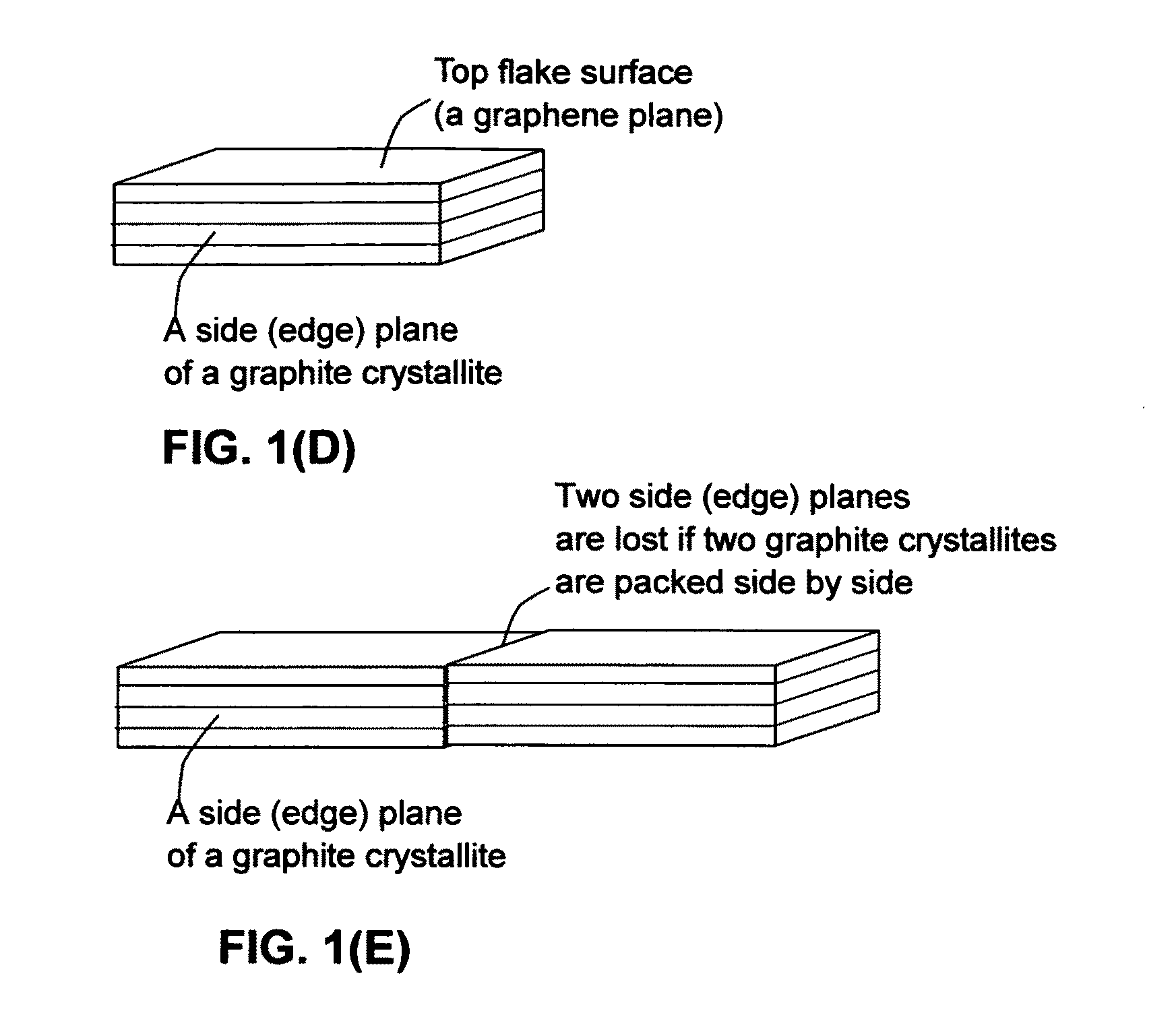Graphite or carbon particulates for the lithium ion battery anode
- Summary
- Abstract
- Description
- Claims
- Application Information
AI Technical Summary
Benefits of technology
Problems solved by technology
Method used
Image
Examples
example 1
Graphite Particulate Containing an Ellipsoidal Graphite Core and Expanded Graphite- or NGP-Based Satellite Particles
[0086]Ellipsoidal graphite particles were obtained from Hua-Dong Graphite Co., QingDao, China. These particles (11 μm in average size) were believed to be produced by shape modification of natural flake graphite. These particles, having a major axis-to-minor axis ratio of approximately 1.6, were used as the core particles.
[0087]Expanded graphite was used as satellite graphite particles. Expanded graphite was obtained according to the following procedure. Natural flake graphite, nominally sized at 45 μm, provided by Asbury Carbons (405 Old Main St., Asbury, N.J. 08802, USA) was milled to reduce the size to approximately 14 μm (Sample 1a). The chemicals used in the present study, including fuming nitric acid (>90%), sulfuric acid (95-98%), potassium chlorate (98%), and hydrochloric acid (37%), were purchased from Sigma-Aldrich and used as received. Graphite oxide (GO) or...
example 2
Spherical MCMBs as Core Particles
[0095]MCMBs (average diameter of 15 μm) were obtained from Shanghai Shan Shan Tech as a sample. Carbon-graphite particulates were obtained from MCMBs as core particles and the expanded graphite particles and NGPs, as obtained in Example 1, were used as satellite particles by using the same procedures described in Example 1. The resulting particulates are denoted as Sample MC-EP-3 (expanded graphite as satellite particles) and MC-NGP-4 (NGPs as satellite particles).
example 3
Graphitic Fibrils as Core Particles Prepared from Electrochemical Intercalation and Splitting of Carbon Fibers
[0096]In a typical experiment, one gram of Amoco P-25 fibers, ground to approximately 220 μm in length, was used as the anode and 1 L of nitric acid was used as the electrolyte and intercalate source in an electrochemical intercalation system. The anode supporting element is a platinum plate and the cathode is a graphite plate of approximately 4 cm in diameter and 0.2 cm in thickness. The separator, a glass fiber fabric, was used to separate the cathode plate from the graphite / carbon fibers and to compress the fibers down against the anode supporting element to ensure that the graphite / carbon fiber segments are in electrical contact with the anode supporting element to serve as the anode in the electrochemical system (analogous to an electroplating apparatus). The electrodes, electrolyte, and separator are contained in a Buchner-type funnel to form an electrochemical interca...
PUM
 Login to View More
Login to View More Abstract
Description
Claims
Application Information
 Login to View More
Login to View More - R&D
- Intellectual Property
- Life Sciences
- Materials
- Tech Scout
- Unparalleled Data Quality
- Higher Quality Content
- 60% Fewer Hallucinations
Browse by: Latest US Patents, China's latest patents, Technical Efficacy Thesaurus, Application Domain, Technology Topic, Popular Technical Reports.
© 2025 PatSnap. All rights reserved.Legal|Privacy policy|Modern Slavery Act Transparency Statement|Sitemap|About US| Contact US: help@patsnap.com



